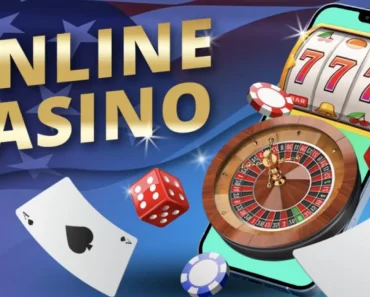Gambling behavior is influenced by a complex interplay of psychological factors, including cognitive biases, emotional responses, and social influences. This article explores the psychology of gambling, examining the underlying judi bola mechanisms that drive individuals to engage in gambling activities and the cognitive processes that shape their decision-making.
Cognitive Biases
- Illusion of Control: Some gamblers exhibit an illusion of control, believing they can influence the outcome of games demo slot through skill or strategy, even in games of chance where outcomes are determined by randomness.
- Probability Misjudgment: Gamblers often exhibit biases in probability estimation, overestimating their chances of winning and underestimating the risks of losing, leading to irrational decision-making and persistent gambling behaviors.
Emotional Responses
- Reward System Activation: Gambling activates the brain’s reward system, releasing dopamine and other neurotransmitters associated with pleasure and reinforcement, reinforcing the behavior and contributing to addictive tendencies.
- Loss Aversion: The fear of losses can drive compulsive gambling behaviors, as individuals seek to recoup losses and alleviate negative emotions associated with defeat, leading to a cycle of chasing losses and escalating bets.
Social Influences
- Social Norms: Social influences play a significant role in gambling behavior, with peer pressure, social acceptance, and cultural norms shaping individuals’ attitudes towards gambling and influencing their likelihood of participation.
- Modeling and Imitation: Observing others’ gambling behaviors, including friends, family members, and celebrities, can influence individuals’ perceptions of gambling as a socially acceptable or desirable activity, leading to increased participation and risk of addiction.
Decision-Making Processes
- Risk and Uncertainty: Gambling involves inherent risks and uncertainties, requiring individuals to make decisions under conditions of ambiguity and incomplete information, which can be influenced by cognitive biases and emotional responses.
- Impulsivity and Self-Control: Individual differences in impulsivity and self-control play a role in gambling behavior, with impulsive individuals more likely to engage in risky behaviors and struggle with controlling their urges to gamble.
Conclusion
Understanding the psychology of gambling is essential for developing effective interventions and treatment strategies to address problem gambling behaviors and promote responsible gambling practices. By recognizing the cognitive biases, emotional responses, and social influences that contribute to gambling addiction, clinicians, therapists, and counselors can develop personalized approaches to support individuals struggling with gambling-related problems. Through a combination of psychological therapies, peer support networks, and public education initiatives, it is possible to mitigate the negative consequences of gambling addiction and foster healthier relationships with gambling among affected individuals and communities.




